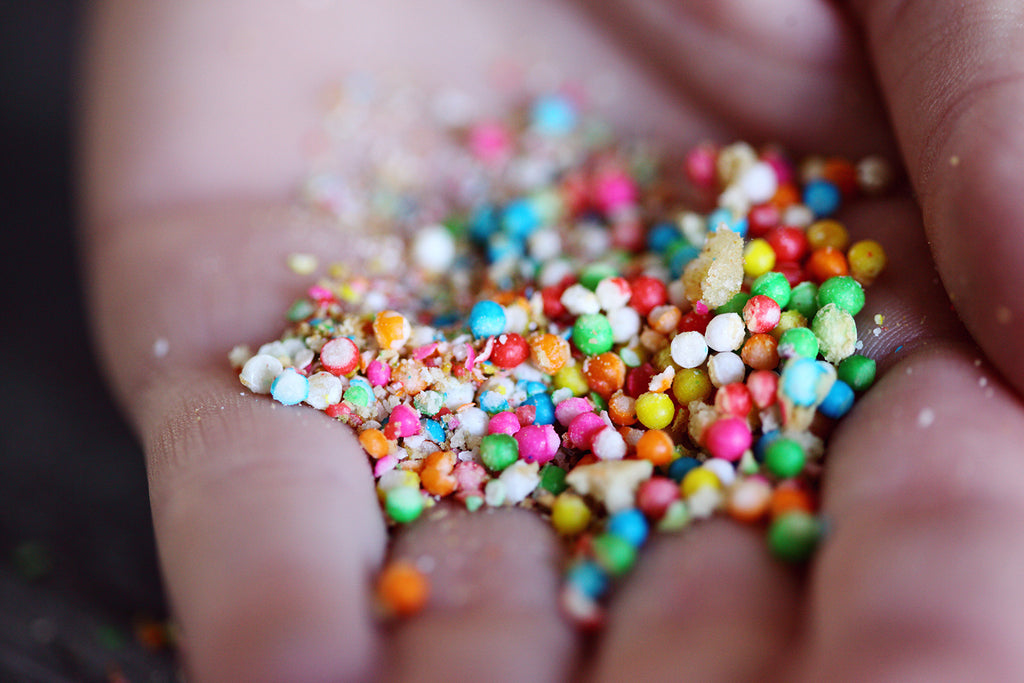Sugar handling might not be what you think

Sugar handling?
As the old joke goes, “Sure, I've got sugar handling down to a science. In one hand I have a bag of M&Ms, in the other hand I have a bag of Skittles.”
If your idea of sugar handling is the above, it's time to set the record straight.
Sugar handling refers to how your body deals with sugars you’ve digested. Sugar could be candy or soda, or could come in the form of a carb-rich baked potato or even a bowl of corn flakes. Essentially, we’re talking carbohydrates here, and we definitely need the right kinds in the right amounts in our diet, but sometimes the way our bodies handle those sugars gets out of whack.
From diabetes to hypoglycemia
Most people will think of diabetes and dangerously high levels of blood sugar when they think of blood sugar issues, but our bodies can also suffer from hypoglycemia – a severe dip in blood sugar. In between these two extremes are a continuum of symptoms that identify possible signs of poor sugar handling.
Symptoms of poor sugar handling can include:
- Sugar cravings
- Feeling shaky, hangry or lightheaded before a meal or if a meal is skipped
- Feeling fatigued or sleepy after a meal
- Headaches
- Sore joints or backache
- Digestive trouble
The cause of these symptoms isn’t tied to any one disease or disorder. It could be as serious as full-blown hypoglycemia, which can cause seizures, or it could be linked to eating too few calories. A good discussion of some of the common causes can be found here.
Whatever the root cause, poor sugar handling affects the nervous system, which ultimately affects every system in our bodies. The effects can be devastating to your metabolism as well as negatively affecting your reproductive hormones. Your liver, pancreas and kidney function can all be affected, as can your circulation. Your mental and emotional health can suffer as well.
“Brain fog” – that feeling that you can’t think clearly or focus – is a common symptom of low blood sugar. It can look like sitting at your desk getting nothing done or wandering around the grocery store not sure what you should be putting in your cart.
Our brains need adequate blood sugar to function, and when it’s too low, this “fog” can occur. It may seem like a minor annoyance when it happens once in a while, but long term it can lead to dementia if it is not addressed. This illustrates why it is so important to take action for stabilizing blood sugar.
Three steps toward better health
If you suspect that you may have a problem with sugar handling, be sure to see your doctor to get a proper diagnosis. In the meantime, you can do a few simple things to improve your health – and they are sound habits for anyone to follow.
Avoid processed foods. Processed foods are notorious for having added sugar hidden within the ingredients – even for something seemingly not sweet, such as chips or crackers. Processed foods are also loaded with polyunsaturated fatty acids (PUFAs) that can block sugar from entering your cells, which they need to create energy. Other studies have shown PUFAs are also linked to obesity – another great reason to avoid highly processed foods.
Moderate or avoid “white” foods. Bread in all its forms (like croissants, pizza and pancakes), plus rice and pasta have two things in common: They are lightly colored (“white”) and are all high on the glycemic index. The glycemic index measures how much “blood sugar stress” a food puts on our bodies. Eating “lower” on the index will help take the glycemic load off of your body.
Eat your macros. Macros, or macronutrients, are our main food building blocks: proteins, carbs and fats. Making sure you get some of each in every meal or snack will help even out the blood sugar spikes and dips. Eating enough good fats (think avocados, nuts, coconut and olive oil) is an essential part of the equation, so don’t shy away from them.
Unfortunately, the Standard American Diet, with its apt acronym SAD, is a huge culprit in the way many of us eat. To revise your eating habits will probably require planning and discipline that you might not be used to.
But don’t stress. Stress actually increases the desire reach for the cookies. Instead, think about a few small changes that you’d be willing to make today. Start with those, and see if you start to feel better.
To inspire you, check out some past Best Day Ever posts on eating well:
Avoiding wheat? Here’s what to eat instead
Photo by Sharon McCutcheon on Unsplash
